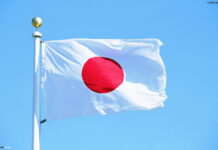
ISLAMABAD, Sep 19 (APP): The speakers in a conference on Monday said that around 1.2 billion people around the world were vulnerable to food and energy crisis as Russia and Ukraine is the food basket of world which is currently burning because of war.
The speakers were addressing a national conference titled“Russia-Ukraine Crisis & Regional Security Apparatus,” organized by Islamabad Institute of Conflict Resolution (IICR), said a press release issued here.
Speaking on the occasion, Prof. Dr. Rifaat Hussain, HOD Department of Governance and Policy NUST, said that Russians were apprehensive of NATO’s eastward expansion which was the precursor of Russia-Ukraine crisis.
She said that Sino-Russia strategic partnership was to reduce the US led hegemonic order which had come out in open after China had shown readiness to help Russia in order to ensure multipolar world order.
Dr. Azhar Ahmed, Faculty member Department of Humanities and Social Sciences Bharia University, said, conflicts have political and economic consequences and the world is facing one in shape of Russia Ukraine conflict.
He said that it was in-fact a proxy war between Russia and the west and an important aspect in global transition from west to east.
Around 1.2 billion people are vulnerable to food energy and Russia and Ukraine are the food basket of world which is currently burning.
Apart from food resources both Russia and Ukraine were supplier of crude oil and fossil fuels, Russia being the major one.
Dr. Shabana Fayaz, HOD, Department of Defence and Strategic Studies, QAU said it is the human security which is the ultimate victim of it. The war is transforming both traditional and non-traditional security order of Europe.
Dr. Shabana said that that rather cooperation and integrating Russia into European security apparatus, Moscow became the “crosshairs’ of western security apparatus.
Talking about the China-Taiwan issue Dr. Fayaz said that the Taiwan appears to be a flashpoint between China and the US.
Advocate Nasir Qadri Executive Director LFOK said that despite dissolution of Soviet Union in 1991, NATO had since undergone stages of expansion.
He said that the alliance added more eastern bloc countries in late 90s and early 2000.
The Baltic countries of Estonia, Latvia and Lithuania on the Northern end of Russia’s western border joined NATO in 2005, thus objective of containing Russia advanced.
Shahid Raza, Security Analyst. said that in the past 20 years Russia and Pakistan had maintained relations very carefully and China has a great role in ties between Russia and Pakistan.
He said that most of Pakistan’s weaknesses are economic in nature and the economy is the single biggest reason why Pakistan find itself squeezed between the east and the west.